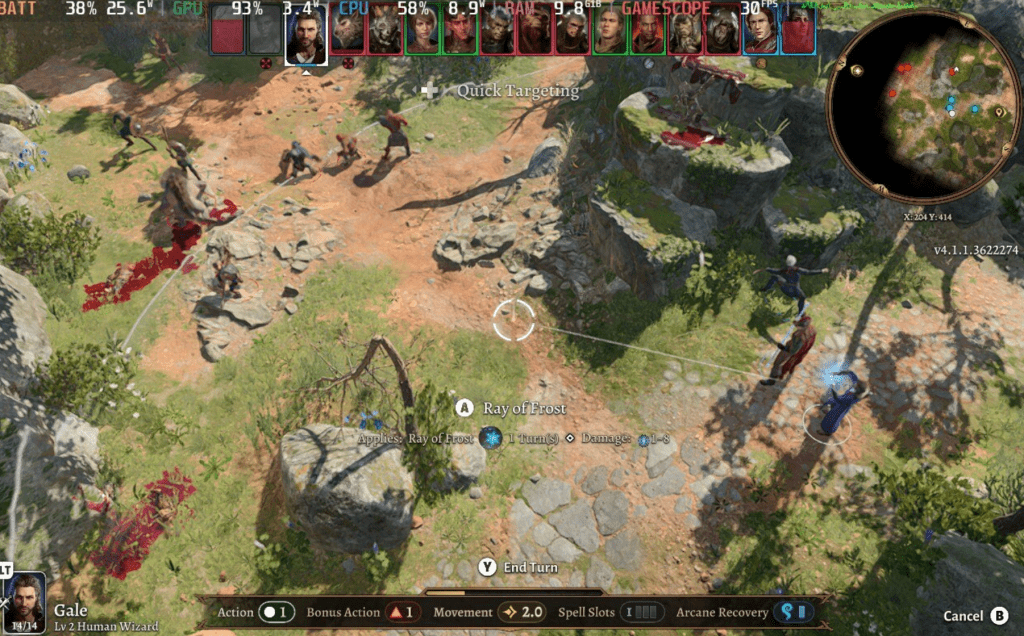
Baldur’s Gate 3, much like Larian’s Divinity: Original Sin series, stands out in its own unique way, and you can’t simply “farm” experience points. There are no endlessly respawning enemies to exploit, nor dungeons for massive XP gains. Moreover, being a Dungeons & Dragons title, leveling isn’t as frequent but holds greater significance, as it brings substantial power boosts to your character.
In Baldur’s Gate 3, the maximum level is 12, and leveling may seem like a lengthy process. Fortunately, it’s not as daunting as it appears. After escaping the Nautiloid ship in the first act and venturing into the world, there are several methods to earn experience points and rapidly grow stronger. Here are some of these approaches.
Sustained Exploration
Gaining experience points by discovering new locations while exploring the world is a straightforward way to accumulate XP. Given the typical operation of Larian games, you should explore as much as possible. You never know where you might find hidden treasures, a note that guides you on a quest, or encounter NPCs with different skill checks that might lead to standalone side quests. Exploration also aids in unlocking new fast travel points—a perfect choice when you want to stop at a town’s vendor to sell items and rest on your journey.
Successful Skill Checks

Though each successful skill check yields relatively fewer experience points, they add up from the start, making it a reliable source. Skill checks involve rolling dice out of combat, such as trying to persuade someone or using an evil tentacle to probe thoughts. This depends on your ability score modifiers and proficiency in the relevant skill. If you have strength (based on strength) involving situations that require more strength will come into play.
Other factors like items and abilities can help tip the odds in your favor. For instance, equipment that provides bonuses during lockpicking, skills like “Guidance” (which your party members, like Shadowheart, can provide), and your proficiency level are all considered to improve your chances.
Success in skill checks depends on the difficulty level (the number you need to roll). If a skill check has a difficulty of 15, and you don’t have any proficiency or abilities to assist, you’ll need to rely on luck. Additionally, if faced with a task where you are comparatively weak in a particular skill, you might face penalties, reducing the fixed number of the dice result.
Do your best to engage in skill checks where you can succeed. However, don’t shy away from decisions that require intimidation or persuasion, even if failing might not lead to favorable outcomes.
Note: Completing goals related to your background grants Inspiration points, allowing you to reroll if you fail. This is useful for attempting to gain experience points again and when you don’t want certain decisions to proceed in a particular way.

Combat
Exploration also serves as an ideal way to encounter more combat scenarios. While battles occur at various points in the story, engaging enemies during exploration adds to your experience points. Ensure you have a well-prepared combat strategy, and if a battle isn’t going well, disengage and try a different approach.
Quest Completion
Although it might start a bit slow, quests will start pouring in after heading to the Emerald Grove and conversing with several NPCs. Due to different decisions, several quests may arise that are unrelated to the main storyline (often offering more XP). Pursuing them is worthwhile, not just for the XP they provide, but also because the decisions made might impact the future. Make sure to complete companion quests as well, as they not only offer experience points but also different rewards.
Baldur’s Gate 3 is currently playable on PC and was released on September 6 on PS5.



Leave a Reply